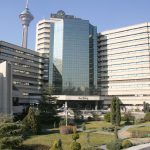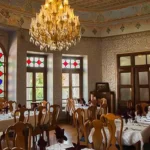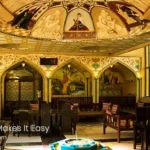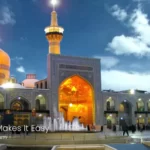Is Iran the Medical Hub of Asia?
Health and medical tourism is a global health and tourism sector, particularly in Asia, that combines low prices with standard quality care for those who cannot afford or can afford expensive medical care in their own country.
Iran is now recognized as one of the countries with great potential for health and Iran medical travel tour guide and has already become the number one medical and health travel destination in the Islamic world. Due to the rapid improvement of Iran’s health indicators, the development of biotechnology and advanced medical technology, the presence of medical centers, genetic research and other research unique in the Middle East, the quality and health of medical care, especially in surgery, allies very low prices , Iran has already become one of the best medical and health tourism destinations in the region.
Iran’s geographical position also plays a role in its potential for health tourism on the one hand and medical tourism on the other. The majority of medical tourists to Iran are citizens of Iran’s neighboring countries. These include neighboring countries of Iran, Afghanistan, Pakistan, Armenia, Republic of Azerbaijan, Iraq and Turkey, where people cannot receive the same care in their own countries. But there are also Arab countries in the Persian Gulf, countries in Central Asia, and some Latin American countries, whose citizens have come to Iran for medical tourism, especially regarding the quality-price ratio of Iranian medical services.
Iran has great potential in the field of health tourism. The presence of various ecosystems, especially mountains with many hot springs, deserts that promise tranquility and meditation, and lakes with therapeutic waters, are important assets of the region. To date, more than a thousand thermal springs with healing properties have been recorded in the country, less than half of which have been locally exploited for health tourism.
When it comes to medical tourism itself, Iran also has undeniable advantages, given the importance. An extended health system throughout the country, rapidly expanding medical infrastructures, qualified medical personnel, a developed and expanding pharmaceutical industry, medical centers of cutting edge, particularly in genetic and biotechnological studies (Iran is 5th in the world in biotechnology, and nine of the fifteen existing biotechnical molecules are currently produced in the country), regularly updated medical treatments, the possibility of to undergo long-term care such as dialysis, international quality surgery and the low prices of all medical services compared to other countries with comparable health systems, thus attracting tens of thousands of tourists every year.
The importance of this tourism sector has recently aroused the interest of officials, and programs have been drawn up to concretely make Iran at least a regional hub in health tourism. Thus, the 4th National Development Plan provides for 30% of the necessary investments in health to be obtained through the export of medical, pharmaceutical and technological products, medical tourism and health tourism. The efforts made relate to both types of health tourism, health tourism for both therapeutic and leisure activities on the one hand and actual medical tourism on the other.
In the field of health and leisure tourism, the development of many hot springs and mineral springs in the country is being considered by the Iran Tourism Board. The Iran Tourism Board is currently conducting research into Iran’s potential, especially in the field of thalassotherapy and spa treatments. Creating a complete guide to over 1000 sources of information already identified and their possible uses. Participation in international medical and tourism fairs since 2010
Significant advances in medicine, coupled with professional medical teams, have increased Iran’s popularity as a global medical center. The Persian Gulf country is also known for providing one of the most affordable medical services.
Iran has seen a significant increase in the number of health tourists in recent years, most of whom require surgery.
Until 30 years ago, Iran relied on foreign doctors due to a shortage of local specialists. The health system decided to solve the problem through comprehensive planning. Today, Iran’s doctors outnumber domestic demand. Therefore, many people are looking for work abroad.
Iran prides itself on its highly qualified professionals and the latest medical technology to provide quality medical services to patients in its homeland.
Many Iranians living abroad are proud of medical advances made by Iranian professionals who prefer to be cured in Iran, even though they have access to the most modern hospitals in the world.
You can receive high-quality medical services comparable to European countries and the United States. Similarly, services in Iran are offered at one-tenth the price of those in these countries. Also, patients can receive more coverage from their home country insurers than they would spend on treatment in Iran. There are other reasons why foreign patients come to Iran. Most of them choose Iran to avoid high medical costs in their home countries and other developed countries and to circumvent laws that restrict access to certain treatments.
Many of these patients came from developed countries with cutting-edge medical technology and equipment. However, it is not legal to buy or sell organs in these countries. Hospitals in such countries avoid transplants that force patients to seek treatment in other countries. Iran’s Ministry of Health has enacted legislation to prevent such surgeries in order to keep abreast of laws in other countries’ healthcare systems. With the number of medical graduates growing, there is no shortage here. It also has more alumni than the country needs.
Certain programs, such as “self-funded hospitals,” have also wreaked havoc on the education system. Some self-funded hospitals were considered private and could not rely on government funding, so they had to rent out teaching wards to make more money.

















